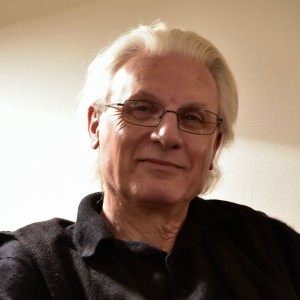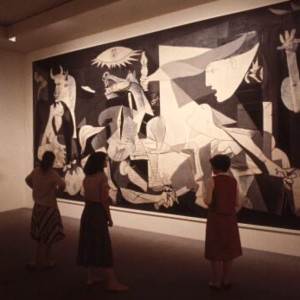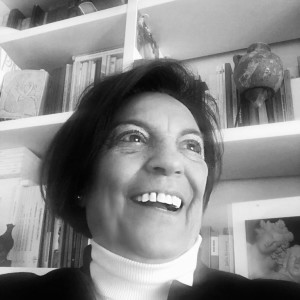Talks On Psychoanalysis
theoretical models
Episodes

Monday Jan 22, 2024
Monday Jan 22, 2024
What does a psychoanalyst do in his practice with his patients? How can we define the act of the psychoanalyst at work? It is this vast question that Bernard Penot addresses in this podcast, talking about the act of the psychoanalyst in the service of subjectivation. Referring to Freud's work on transference and then to Lacan's work on the psychoanalytical act during the years of student revolts in France in may 1968, he manages to show us the active involvement of the psychoanalyst in the practice of the cures he provides.
Bernard Penot is a french psychoanalyst. He lives and works in Paris. He has been a full member and training analyst of the Paris Psychoanalytical Society since 1990. As neuropsychiatrist, he was the director of a day hospital for adolescents in Paris for many years. He is the author of several books published in french, and of numerous articles published in the French journal of psychoanalysis and the International journal of psychoanalysis.
Link to the paper https://docs.google.com/document/d/1YtXzBF8rEX4-Gpf6tGsajv6-tShQxbwT/edit?usp=sharing&ouid=112457875385152358388&rtpof=true&sd=true
This episode is available also in French
A subtitled version of this podcast is available on our YouTube channel:https://youtube.com/playlist?list=PLhxiwE76e0QaOquX3GujdwNLFsgxUQNXz&si=yf381EDu3pess6Yz
This episode has been produced in collaboration with Julia-Flore Alibert.
This Podcast Series, published by the International Psychoanalytical Association, is part of the activities of the IPA Communication Committee and is produced by the IPA Podcast Editorial Team.
Head of the Podcast Editorial Team: Gaetano Pellegrini.Editing and Post-Production: Massimiliano Guerrieri.
Music: Chopin_Waltzes_Op.69. Performer Olga Gurevich. https://musopen.org/music/4415-waltzes-op-69/
Cover Image: Blue human figure and fox in cage on black paper. Blum, Alexandra, artist - Courtesy Library of Congress. https://hdl.loc.gov/loc.pnp/pp.print

Monday Sep 12, 2022
Monday Sep 12, 2022
The impact of reality on the psychoanalytical treatment and on the work of renunciation of the patient and the analyst.Which realities are involved in the cure?
In this episode Bernard Chervet talks about the impact of reality on psychoanalytic treatment. In light of recent contexts of the global pandemic and upheavals it has caused, Bernard Chervet offers us a theoretical exploration of different notions of reality which confront the analyst. By redefining the terms intrusion, irruption and break-in, and by showing the correlation between internal and external realities, he explains how a traumatic external reality bursting into the treatment re-enacts infantile sexuality from childhood when the difference between the sexes was discovered. He shows us how the analyst, guardian of psychic life, must take all these realities into account in his work with his patients. The analyst must respect and even favour a time of immobilisation and temporary denial linked to a shock without losing sight of resuming the analytical process in a second phase in order to achieve a regeneration of the libido, the very objective of dream work and session work.
Bernard Chervet is a French psychiatrist and psychoanalyst. He lives and works in Paris and Lyon. He is a training psychoanalyst of the Psychoanalytic Society of Paris (SPP), he was a Former President of the SPP. He is a representative on the IPA Board and on the IPA Executive Committee. He is Scientific Director of the Congress of French speaking Psychoanalysts (CPLF), Founder of SPP Editions and he has authored numerous publications in French and international journals. He was the winner of the french Maurice Bouvet Prize in 2018 for his complete works. As the key-note speaker at the CPLF on the theme "Après-coup", he is the author of “Après-coup in Psychoanalysis: The Fulfilment of Desire and Thought” (to be published in 2022 by Routledge). Finally, he is also contributor to the IPA encyclopedic dictionary.
A subtitled version of this podcast is available on our YouTube channel:https://youtube.com/playlist?list=PLhxiwE76e0QaOquX3GujdwNLFsgxUQNXz&si=yf381EDu3pess6Yz
This episode has been produced in collaboration with Julia-Flore Alibert.
This Podcast Series, published by the International Psychoanalytical Association, is part of the activities of the IPA Communication Committee and is produced by the IPA Podcast Editorial Team.
Head of the Podcast Editorial Team: Gaetano Pellegrini.Editing and Post-Production: Massimiliano Guerrieri.
Link to the paper https://docs.google.com/document/d/1ixWEPk_P7UaIBlGDwM2OtHEM-MzTSZ5l/edit?usp=sharing&ouid=112457875385152358388&rtpof=true&sd=true
This episode is available also in French
References:
Chervet, B. (2022) The Case of J: Returning to the Office. International Journal of Psychoanalysis 103:518-523
Chervet, B. (2021) The Traumatic and the Work of the Après-Coup in Freud’s Opus. International Journal of Psychoanalysis 102:765-777
Chervet, B. (2020) The case of J: Working as a psychoanalyst during the Pandemic. International Journal of Psychoanalysis 101:784-790
Chervet, B. (2013) André Green 1927-2012: An Artisan of the Future. International Journal of Psychoanalysis 94:157-166
Chervet, B. (2010) La tentation psychotique [The Psychotic Temptation] by Liliane Abensour Presses Universitaires de France, Paris, 2008; 206 pp.. International Journal of Psychoanalysis 91:448-454
Bernard Chervet: Eros idealized and the life drive de-idealized. Session work and the reference to an ideal psychic functioningPre published papers 2022 — 6 juil. 2022Bernard Chervet: Which Reality Testing for Psychoanalysis in the Post-Truth Era? From Kettle Logic to the Witch Trial— 1 Dec. 2021Bernard Chervet: The Après-Coup: Form and Formlessness in Dream-Work and Unconscious Formations. The Formal Regression to Formlessness and the Manufacturer of Forms - from Bulletin 67, 2013— 5 Nov. 2020Bernard Chervet: Sensual Regression and Emergence of Erotogenicity Following Sensual Regression Within SessionsBulletin 73, 2019 — 19 Nov. 2019Bernard Chervet: The paths (x) of authority or How can psychoanalysts lack judgement ? 13 Feb. 2016Bernard Chervet: Too Much … Too Little … Two Reminiscences of the Traumatic Dimension in Psychoanalytic SessionsBulletin 69, 2015 (Page 125-137) — 1 Aug. 2015Bernard Chervet: The Après-Coup: Form and Formlessness in Dream-Work and Unconscious Formations. The Formal Regression to Formlessness and the Manufacturer of FormsPage 79-89 — 1 Oct. 2013Bernard Chervet: Opening Speech, Paris Psychoanalytic SocietyPage 11-12 — 14 Jan. 2013Bernard Chervet: The french model’s three-sessions-a-week treatment frame. Neither too much, nor not enoughEPF ; 25° Annual Conference. March the 28th 2012
Bernard Chervet: Eros idealized and the life drive de-idealized. Session work and the reference to an ideal psychic functioning. 2022 Bernard Chervet: Éros idéalisé et pulsion de vie désidéalisée. Le travail de séance et la référence à un fonctionnement psychique idéal. 2022Psychoanalysis and Covidian life – common distress, individual experience edited in French, English and Portuguese by H. B. Levine and A. de Staal, Bicester, Phoenix Publishing House, 2021, 288 pp., ISBN 978-1912691777

Monday Apr 04, 2022
Monday Apr 04, 2022
"Guernica" by Picasso at MOMA, NYC. Gotfryd, Bernard, photographer. Courtesy Library of Congress.
What happens when our basic trust in the world is challenged, and the social dimension of reality is disrupted as a consequence of collective trauma?In this episode, Werner Bohleber addresses the theme of traumatic experiences and does so starting from the two main models around which psychoanalytic thought has sought to understand trauma: the freudian psycho-economic model and the object-relational model.Reflecting on what he so effectively defines as "the symbolic web that carries us", Bohleber considers the implications of man-made disasters, and those that befall our individual and collective memory.
Werner Bohleber, Dr. phil, is a psychoanalyst in private practice in Frankfurt am Main. He is training analyst and former President of the German Psychoanalytical Association. He has long served on committees of the IPA, the last from 2009-2013 as Chair of the IPA Committee on Conceptual Integration. From 1997 to 2017 he was main editor of the journal PSYCHE. His research subjects and main publication themes are: late adolescence and young adulthood; psychoanalytic theory; transgenerational consequences of the Nazi period and the war on the second and third generation; nationalism, terrorism, anti-Semitism; trauma research. In 2007, he was awarded the Mary S. Sigourney Award for his diverse contributions, especially those relating to the traumatic aftermath of the Holocaust, National Socialism, and World War II.
link to the paper https://docs.google.com/document/d/18yMyiZ6darmN6ouxVoQmUwlci44UCnCQ/edit?usp=sharing&ouid=112457875385152358388&rtpof=true&sd=true
this episode is available also in German
Bibliography
Allen, J. (2013). Mentalizing in the development and treatment of attachment trauma. London: Karnac.
Amery J. (1996): Die Tortur. Merkur, 50, 502-515.
Balint M (1969). Trauma and object relationship. Int. J. Psycho-Anal. 50: 429-36.
Baranger M, Baranger W, Mom JM (1988). The infantile psychic trauma from us to Freud: Pure trauma, retroactivity and reconstruction. Int. J. Psycho-Anal. 69: 113-28.
Bohleber, W (2010). Destructiveness, Intersubjectivity, and Trauma. The Identity Crisis of Modern Psychoanalysis. London: Karnac.
Cooper, A. (1986), Toward a limited definition of psychic trauma. In: The Reconstruction of Trauma. Its Significance in Clinical Work, ed. A. Rothstein. Madison, CT: International Universities Press, pp. 41-56.
Erikson E.H. (1968): Identity. Youth and crisis. Nem York: Norton.
Ferenczi S (1949). Confusion of the tongues between the adults and the child [1933]. Int. J. Psycho-Anal. 30: 225-30.
Freud S (1920). Beyond the pleasure principle. Standard Edition 18, p. 7-64
Freud S (1926). Inhibitions, symptoms and anxiety. Standard Edition 20, p. 77-174.
Freud S. (1939). Moses and Monotheistism. SE 23: 1-138. (GW 16: 103–246)
Garland, C. (1998). Thinking about trauma. In: Garland, C. (Hg.). Understanding trauma. A psychoanalytic approach. London (Karnac).
Krystal, H. (1988). Integration and Self-Healing. Affect, Trauma, Alexithymia. Hillsdale: Analytic Press.
Langer L.L. (1995): Memory’s time: Chronology and duration in Holocaust testimonies. In: Langer, L.L.: Admitting the Holocaust: Collected essays. New York/Oxford: John Hopkins University Press, pp.13-23.
Leys R. (2000). Trauma: A genealogy. Chicago, Ill.: University of Chicago Press.
Morris D. J. (2015): The evil hours. A biography of post-traumatic stress disorder. Boston/New York: Houghton Mifflin Harcourt.
Oliner M. (2012): Psychic reality in context. Perspectives on psychoanalysis, personal history, and trauma. London: Karnac
Shalev A.Y. (1996), Stress Versus Traumatic stress. From Acute Homeostatic Reactions to Chronic Psychopathology. In: Traumatic Stress. The Effects of Overwhelming Experience on Mind, Body and Society, ed. B. van der Kolk, A., Mc Farlane & L.Weisaeth. New York NY: Guilford Press, pp. 77-101.
Steele BF (1994). Psychoanalysis and the maltreatment of children. J. Amer. Psychoanal. Assn. 42: 1001-25.
Van der Kolk B. (1996). Trauma and memory. In: B. van der Kolk, B., A. McFarlane & L. Weisath (Eds.) Traumatic stress. The effects of overwhelming experience on mind, body and society. New York: Guilford Press, pp. 279-302.
van der Kolk B. (2014): The body keeps the score. Mind, brain, and the body in the healing of trauma London: Penguin Books.
CREDITSEditing: Agustín Ruiz Brussain

Monday Feb 08, 2021
Monday Feb 08, 2021
In her work, Teresa Olmos de Paz reflects on some questions and concepts in contemporary psychoanalysis. She emphasizes that the aim of those reflections is to share some ideas among psychoanalysts, because nowadays, no analyst alone can give a global idea of what is considered problematic for contemporary psychoanalysis. Likewise, she highlights the importance of clarifying the concepts facing the diversity of enforced theoretical models in current psychoanalysis.
Teresa Olmos de Paz was born in Córdoba, Argentina. She carried out her psychoanalytic training in Buenos Aires in the 1970’s and has lived in Spain since 1980. She is a training analyst at the Asociación psicoanalítica de Madrid. She has been APM’s president from 2017 till 2019, is a professor at the Institute of Psychoanalysis and was its Director from 2001 to 2003. She is a member of the Forum of Psychoanalysis with adolescents of the European Federation of Psychoanalysis. Among her publications, it should be noted: Structures and / or border states in children, adolescents and adults, together with Carlos Paz and Maria Lucila Pelento. She has published in national and foreign journals, highlighting the International Journal of Psychoanalysis. Together with Carlos A. Paz, she obtained the first prize “Annual Book of Psychoanalysis 1990” with the work: Adolescence and borderline pathology: Characteristics of the relevant psychoanalytic process (Int. J. Psycho-Anal.). She has edited and is co-author of “Los huéspedes del yo. Las identificaciones y desidentificaciones en la clínica psicoanalítica. She is also the Editor and co-author of the book: Los Encuentros de Psicoanalistas de Lengua Castellana.
This text will be read by Andy Cohen and you can listen to it also in the original Spanish, by the voice of the author herself.
Link to the paper https://drive.google.com/file/d/1ft2CkG8BrMa4bUo9zbegR_6ntU3b1pOQ/view?usp=sharing
This episode is available also in Spanish